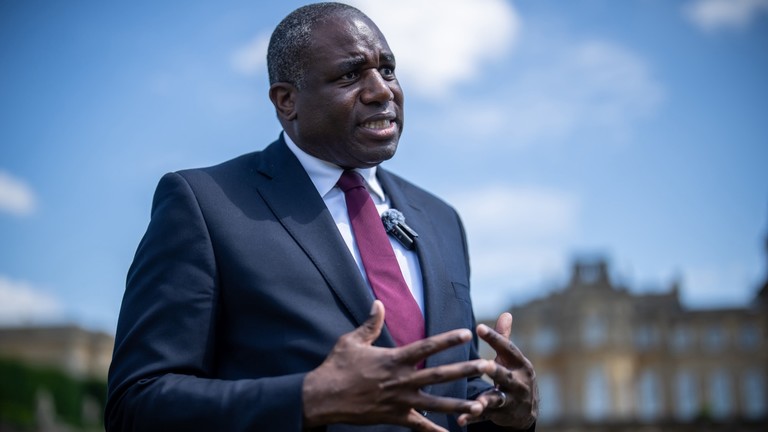Africa
UK’s Top Diplomat States Slavery Reparations ‘Not About Cash’

Britain’s Foreign Secretary emphasized that discussions on slavery reparations are ‘not about cash,’ focusing instead on reconciliation and shared history. Discover the UK’s approach to addressing the legacy of slavery.
Foreign Secretary David Lammy has stated that the UK aims to address its history with the transatlantic slave trade by enhancing trade relations with African nations.
This week, Lammy is traveling to Nigeria and South Africa as part of London’s outreach efforts on the continent. This visit comes just one week after 56 Commonwealth members endorsed a document advocating for discussions about reparations for slavery.
Lammy referred to the transatlantic slave trade as “horrific and horrendous,” noting that it left lasting “scars.” He made these remarks on Monday in Lagos, Nigeria’s port city which once served as a major center for the slave trade.
“I am a descendant of enslaved individuals, so I acknowledge that,” he added.
Lammy is the child of immigrants from Guyana to the UK. British authorities had previously transported numerous African and Indian slaves, as well as indentured servants, to this former colony on the mainland of South America.
In an interview with the state broadcaster BBC, Lammy stated that reparations should not be seen as “the transfer of cash,” particularly during a cost-of-living crisis in the UK. Instead, he suggested that developing countries could gain from receiving British scientific and technical expertise.
Prime Minister Keir Starmer’s cabinet at 10 Downing Street had previously dismissed the possibility of providing cash payments or any other types of non-financial reparatory justice.
READ ALSO: (JUST IN) UK: Nigerian-Born Kemi Badenoch Becomes New Conservative Party Leader
“We do not pay reparations,” a spokesperson for Starmer stated last month, also noting that London will not issue an apology for slavery.
Starmer was responding to reports that a group of Caribbean nations planned to request £200 billion ($261 billion) in compensation for the suffering caused by the transatlantic slave trade.
Although the British Prime Minister asserted that reparations were not a topic at last week’s Commonwealth meeting in Samoa, all 56 member states endorsed a statement identifying slavery as a “crime against humanity.” The declaration urged for “discussions on reparatory justice concerning the transatlantic trade in enslaved Africans and chattel enslavement.”
“The document stated that it is time for a sincere, honest, and respectful dialogue to build a shared future founded on fairness.”
Britain began participating in the transatlantic slave trade in 1562, and by the 1730s had become the largest transporter of enslaved Africans to the Americas. However, during the 19th century, Britain changed its stance: it banned participation in the slave trade with legislation enacted in 1807 and abolished slavery throughout its colonies by passing a law for abolition in 1833.
Reverend Dr. Michael Banner, the dean of Trinity College at Cambridge, stated that the UK owes £205 billion (approximately $266 billion) in reparations to the Caribbean. In 2023, Brattle Group, an economic consulting firm, suggested that Britain’s debt for its three-century-long history of slavery could be as high as £19 trillion ($24 trillion).
Lammy’s visit to Africa marks his inaugural journey as Foreign Secretary. He stated that it would initiate a five-month “consultation process” aimed at ensuring African perspectives are central to shaping the new British strategy toward the continent, while also addressing their varied needs and aspirations.
